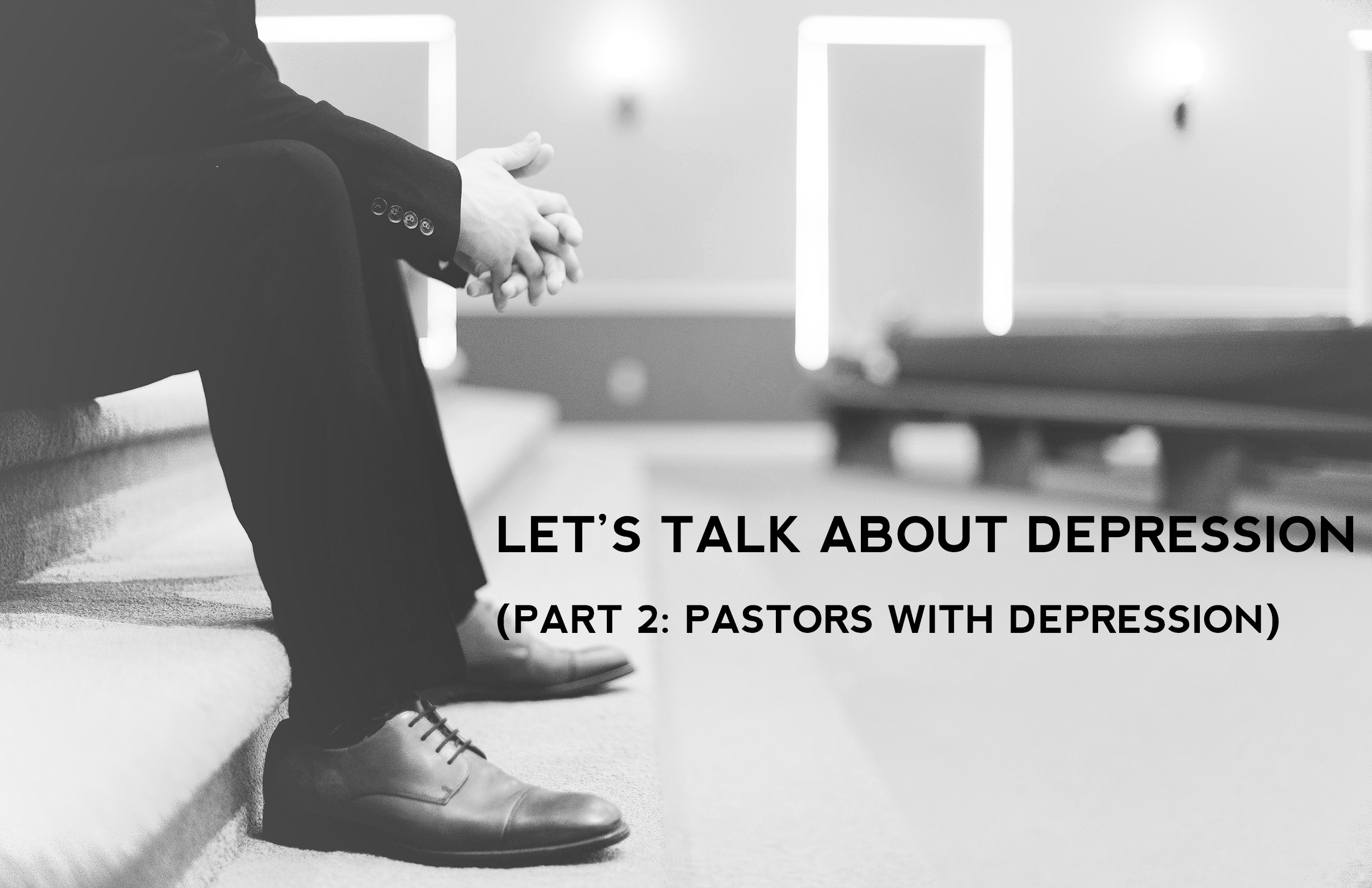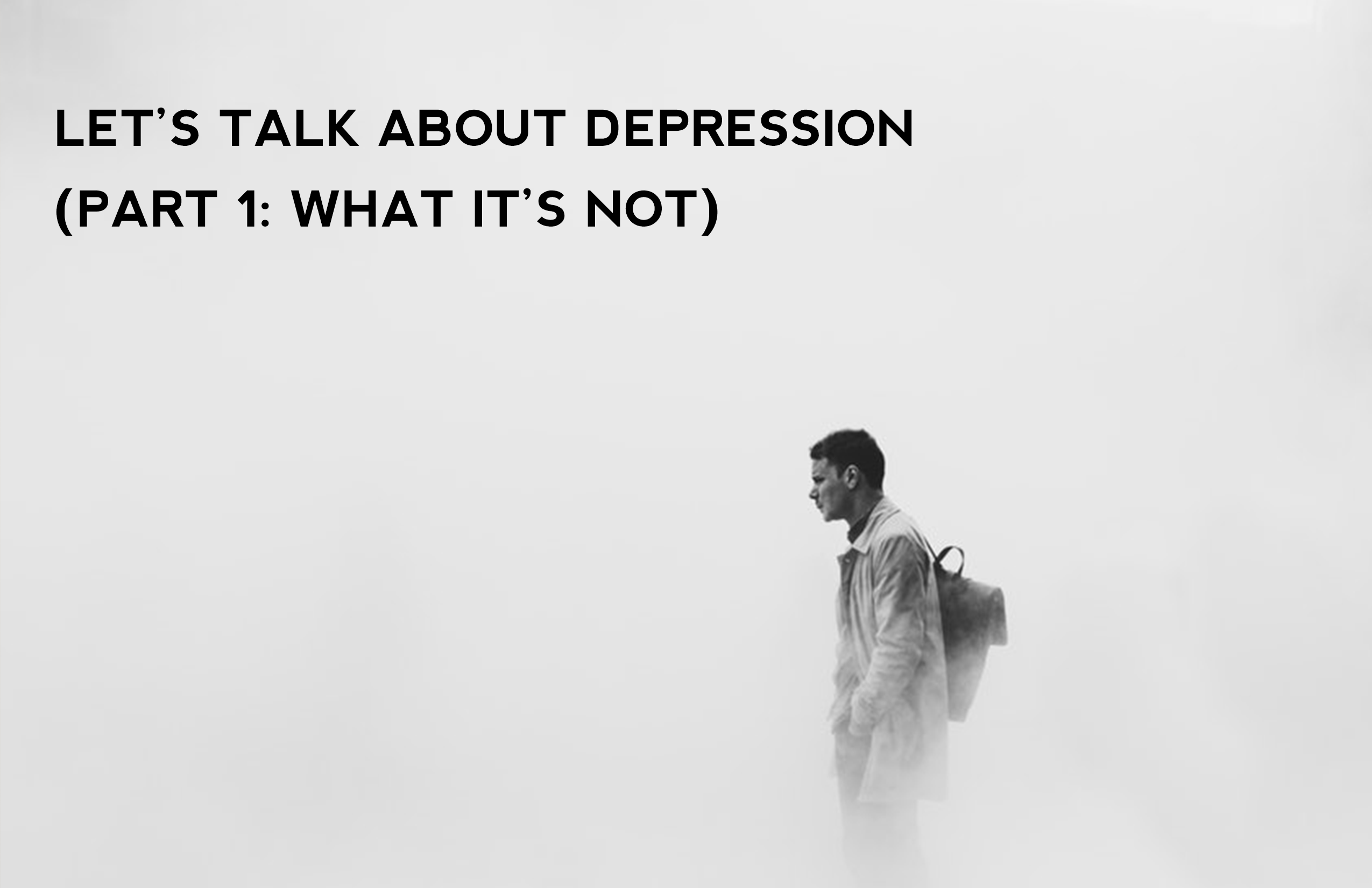Depression as a Pastor
I still wrestle with opening up about struggling with depression, because of one reason: I’m a pastor. I live in constant realization that my life is always on display, and people have assumptions and expectations of me. And while I know it’s often a poor motive, the pressure of those expectations are hard to ignore. Assumptions like, “Pastors are supposed to be close to God. How can you struggle with depression as a pastor?!” Or simply the fact that I have so many people who lean on me for support and strength – but where does a pastor turn when the weight of life is overbearing? We don’t want to disappoint our church family; we often feel ashamed of our private war. Other pastors? It feels risky. The fear of being exposed, ridiculed, judged, or worse – shunned by the very community you hoped would be there for you – is often too high a price to risk.
So how do we cope? We contain the pain. We bottle up the hurt we help others carry. We maintain the very facade we hate and call out in others as inauthentic. We pray to God for peace, while feeling like strangers to the people whom we lead. They don’t often know the real us, the broken us. The depressed us. And while we know God hears us, we often lack the human element of someone who understands; someone who weeps with us and mourns with us.
August 25, 2018, Pastor Andrew Stoecklein of Inland Hills Church in southern CA took his own life after a struggle with depression. I personally know many, many other pastors who have considered such a choice in the middle of their darkest battles.
Here are a few reasons pastors tend to struggle with depression…
- Pastors are exposed to some of the worst parts of the human condition. For me, and many other pastors I know, we’ve had some horrible, horrible things confessed to us in counseling. I’ve literally had every one of the ten commandments confessed to me. As a pastor, I get a front row seat to some amazing things God does in people’s lives. The worst part, by far – is that I still get that front row seat to some of the horrendous things people do to themselves and others. Adultery, rape, abuse, drug use, self-harm, eating disorders, rampant promiscuity, self-medication, suicide – the list goes on. And we try to help. We offer the most talented, experienced wisdom gained often over decades of study and practice. Yet successful outcomes seldom exceed 50%. And because of the rules of counseling, we don’t really get to share these burdens entrusted to us to shepherd. So we lay awake at night, staring at a black ceiling, trying to pray through the darkness around us and inside us now, because of what we’ve had to help others work through.
- We carry many, many people’s grief with us. I’ve buried elderly folks and people younger than me. The immense grief that you help others process is often very, very difficult to shake off of yourself. And over time, all the burdens you’ve helped others lift can seem to have a cumulative affect on the pastor who’s helped them. The pain of a parent who’s lost a kid, or a husband who lost his wife… it’s so raw and painful to watch even if it’s not your own family. And some of those bitter cries of agony stick inside of you. You never forget them.
- We have our own backstory and personal struggles. Pastors are people too. Many of us have been through so much, that we became pastors to compensate by helping others. It’s a good thing, but we still have personal struggles, scars, and sins we battle with. Often, we don’t get to share these struggles, or don’t feel safe sharing them because we feel like others need to see us as strong. We know our strength gives others strength. So what happens when we fall apart? Truth is, probably very good things – but it feels like a big risk. What if me falling apart makes someone else lose hope for themselves? Then what? Could I live with that anguish, if they gave up on their kids? Their marriage? Their sobriety?… Their life?
- Pastors often feel compelled to 24/7 self-censorship. God help the pastor who shows a moment of anger, frustration, or doubt. Some pastors seem cold, distant, or uncaring toward their own congregation. And they might be. Truth is, most of those “types” are afraid of their own people seeing the “real” them and rejecting them… again, pastors are people too.
- We’re never “off”. We don’t punch a clock in ministry. We get calls at midnight, on vacation, and during weddings, sermon prep, funerals, or lunch dates with our spouses. I’ve had people who were in my children’s ministry 14 years ago call me – now as adults – literally distraught about their life. At any moment, someone you married 10 years ago and haven’t heard much from since, might need help because their spouse is abandoning them. And the longer we do this, the longer the list of people who depend on us in times of personal crisis.
- We are recipients of a lot of criticism. Too many Christians will get mad at each other and instead of dealing with that person directly – you know, like mature Christian adults – they’ll complain to the pastor and make it his fault. Pastors get criticized if the music was a touch too loud, the room a bit too cold, their kids a little too rowdy, their wife a little too attractive, etc. Someone always wants to criticize a sermon, demand more personal time, and on, and on it can go in many churches. Seldom, do many pastors ever get acknowledged for the sacrifices they regularly make, the burdens they’re expected to keep confidential, or the constant demand on their time, energy, and family.
Pastors are at war with a real spiritual enemy, who hates us. I take refuge that “greater is He who is in us than He who is in the world,” and yet I know that every war has casualties. We don’t have to like that, but we do have to acknowledge it if we’re going to change it. For the Stoecklein family, that’s not a statistic – it’s a broken heart, a broken family, a confused and lonely childhood, and a deeply wounded church and community.
Every war has casualties. We don’t have to like that, but we do have to acknowledge it if we’re going to change it.
I pray that other fellow pastors find the boldness to talk about their struggles and get the help and healing to empower others to do the same. I’m trying to lend my voice to the conversation. And I’m grateful that so many others have reached out encouraging me in the process. Truly we really are better together.
Blessings,
John



